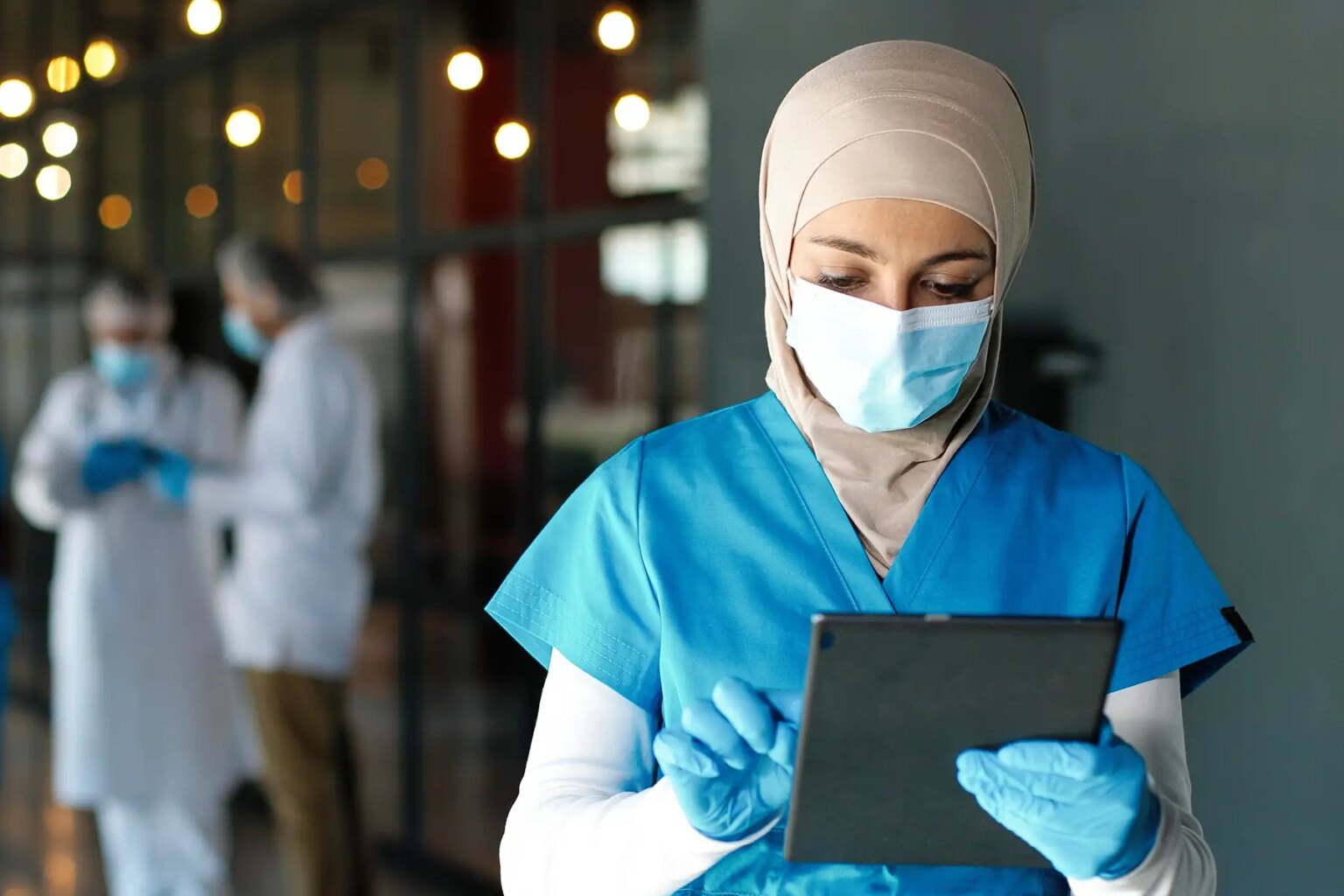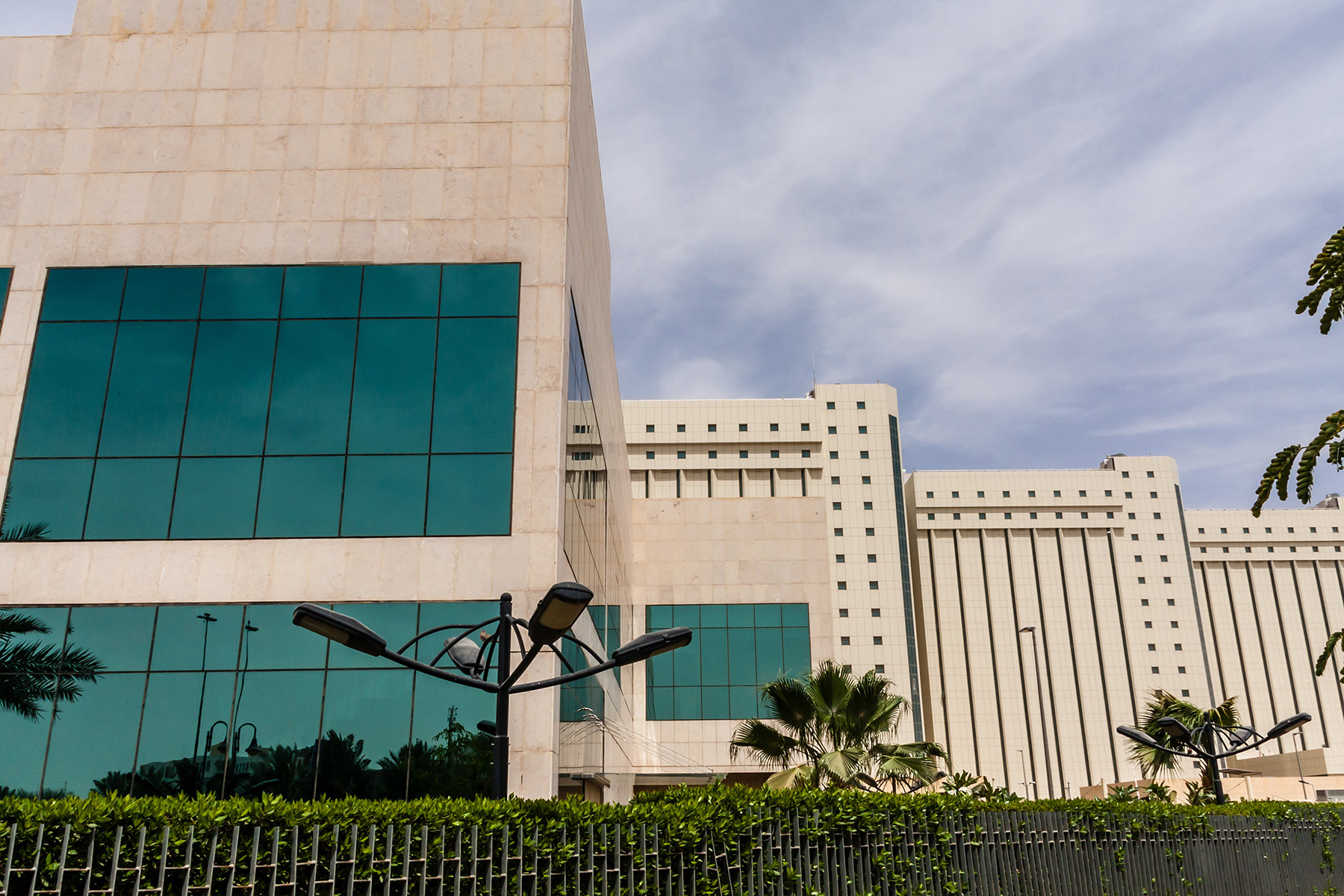Women’s healthcare in Saudi Arabia is often comparable to what is available in Western countries. In spite of the Kingdom’s stance on women’s rights, expat women should be able to anticipate and tackle most issues – once armed with the right information.
This helpful guide includes the following information about women’s healthcare in Saudi Arabia:
- Women’s healthcare in Saudi Arabia
- Accessing women’s healthcare in Saudi Arabia
- Insurance for women’s healthcare in Saudi Arabia
- Gynecologists in Saudi Arabia
- Women’s contraception in Saudi Arabia
- Maternity care services in Saudi Arabia
- Breastfeeding in Saudi Arabia
- Fertility treatments in Saudi Arabia
- Abortion in Saudi Arabia
- Menopause in Saudi Arabia
- Cancer screenings in Saudi Arabia
- Sexual health in Saudi Arabia
- Availability and cost of feminine hygiene products
- Women’s clinics and healthcare centers in Saudi Arabia
- Women’s mental healthcare in Saudi Arabia
APRIL International
Looking for expat-friendly health insurance in Saudi Arabia? APRIL International has a long history of providing health coverage tailored to the unique needs of the expat lifestyle, ensuring peace of mind for you and your family. Whether you're relocating to Saudi Arabia or simply staying short-term, APRIL International has the right policy for you.
Women’s healthcare in Saudi Arabia
Women moving to Saudi Arabia must adjust to stringent rules governing everything; from when they can go to the mall to whether or where they can drive. These rules, which are sometimes vague, can affect the kind, quality, and access that expats have to reproductive and general women’s healthcare in Saudi Arabia. However, on the bright side, because Saudi Arabia hires extensively from outside the Kingdom, healthcare professionals mainly speak English. Therefore, you shouldn’t have too many communication issues.
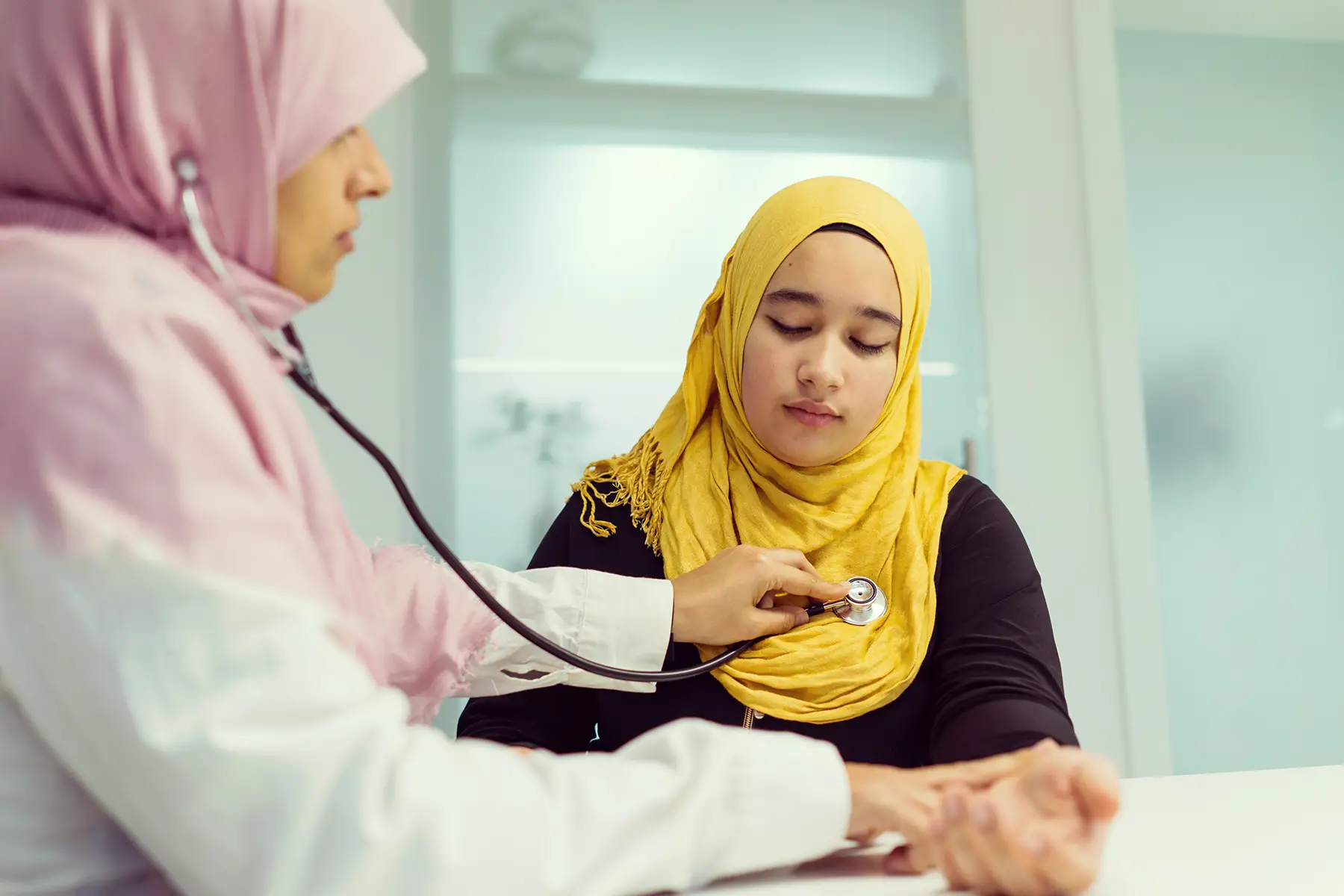
The Saudi government has invested heavily in its healthcare system, importing high-tech machines and highly skilled expat medical professionals. Although quality of care (and insurance) varies significantly, you can generally access healthcare on par with that in your home country. That said, one challenge facing Saudi Arabia is the chronic shortage of medical staff. With a rising population (which is living longer), Saudi Arabia needs 10,000 more doctors by 2020 to meet demand.
Challenges to women’s healthcare in Saudi Arabia
The cultural segregation of Saudi Arabia affects health and healthcare in the Kingdom. Most women suffer from vitamin D deficiency because they have to hide their bodies from the sun. Exercise isn’t promoted widely (and it’s blazing hot) so the Kingdom is seeing a rise in diabetes, hypertension, and other inactivity-related illnesses. In addition, unfortunately, sometimes the rigidity of gender segregation can impact the speed of healthcare delivery if, for example, male paramedics can’t quickly access an all-female space. This might not happen every day – or perhaps ever in the life of an expat – but it is important to keep in mind.
Accessing women’s healthcare in Saudi Arabia
Women-focused healthcare services in Saudi Arabia can either be offered within stand-alone clinics or nestled within larger hospitals and centers. Do your research and get some recommendations before choosing a provider. Generally, though, bigger public hospitals have larger budgets, and thus often offer some of the best care.
Insurance for women’s healthcare in Saudi Arabia
Once upon a time health insurance in Saudi Arabia was free for expats and locals alike. Unfortunately, those days are long gone, and health insurance is now a requirement through expat job contracts. Depending on the insurance, certain aspects may or may not be covered (for example maternity costs), so it’s extremely important that you understand your insurance very well. Although public hospitals are only free for locals, they often have some of the most specialized care; they are available to expats, who need to pay the required fees.
If you’re looking for a health insurer, providers include APRIL International.
Gynecologists in Saudi Arabia
Finding a gynecologist that you are comfortable with is important in any new country. In Saudi Arabia, you have to go through your insurance carrier and, because it’s dependent on your job contract, finalization can take weeks or months. For more urgent needs, you can pay out-of-pocket. There are lots of options, so we advise that you ask within expat networks (or online forums) for recommendations before choosing a provider. Make sure they take your insurance and you should be able to make an appointment directly with them.

Women’s contraception in Saudi Arabia
Birth control
Birth control is legal in the Kingdom, though availability can depend on the city and the pharmacist. The most common option is in pill form, followed by an Intrauterine Device (IUD); some people use only the male condom. For the pill, some pharmacies require a prescription (it’s your safest bet to get one, just in case), though some will sell freely without one. Some pharmacists require a marriage certificate since sex outside of marriage is illegal. However, you are likely to find pharmacists who won’t in cities like Riyadh and Jeddah.
The morning-after pill
Emergency contraception is theoretically available by prescription. However, doctors that will prescribe it and pharmacies that carry it are few and far between. Some women instead choose to use oral contraceptives in such high doses as to serve as an emergency contraceptive. Doctors do not section that technique, so we do not recommend it.
Maternity care services in Saudi Arabia
Giving birth in Saudi Arabia, depending on your healthcare provider, can look much like it would in your home country. Prenatal care is widely available. Mothers-to-be should triple-check that their insurance covers childbirth, as hospital fees can be exorbitant. Even with private insurance, you can choose a doctor or a hospital, so get referrals from friends and trusted medical professionals when deciding where to give birth.

Breastfeeding in Saudi Arabia
There isn’t national information about breastfeeding practices in Saudi Arabia. However, the Quran does dictate that mothers should breastfeed for the first two years. A recent study found that about 80% of new mothers had received information about breastfeeding, often from a medical practitioner. Breastfeeding is widely accepted as a good and important practice in the region. That said, because Saudi Arabia is an extremely conservative society, we do not recommend breastfeeding in public or in spaces where men and women are not segregated.
Fertility treatments in Saudi Arabia
Fertility treatments, in general, used to be highly stigmatized in the Middle East. As this stigma fades, though, and as education rates rise and fertility ones drop, many throughout the region are turning to fertility clinics. Within the Gulf, Saudi Arabia is a leader and offers In Vitro Fertilization (IVF), Intrauterine Insemination (IUI), and Intracytoplasmic sperm injection (ICSI). Most fertility clinics are private and charge fees.

For a list of fertility clinics in the Kingdom, check out IVF Worldwide.
Abortion in Saudi Arabia
Laws on abortion in Saudi Arabia
Abortion is legal in Saudi Arabia when it’s necessary to protect the well-being and safety of the mother, as decided by a medical committee. Unfortunately, as with many rules and practices in Saudi Arabia, there are enough contradictions, in the form of royal, religious, and legal decree, to make access almost impossible. A male guardian’s approval is required to get an abortion, as well as meeting other requirements about gestation and a parent’s reason for seeking termination.
Getting an abortion in Saudi Arabia
Since obtaining a legal abortion can be so challenging, some women will take drugs like Misoprostol or other substances to induce abortion. Expats will usually go to their home country – or an abortion-friendly country like India, Türkiye, or Greece – to terminate their pregnancy. Because having sex outside of marriage is illegal, unmarried expat women who become pregnant are advised to leave the country.
Menopause in Saudi Arabia
Menopause, as an area of interest, is still burgeoning in Saudi Arabia, especially within the health field. Although there have been a few studies conducted on Saudi women’s experience of menopause, there are no menopause-specific clinics or groups in the country. If you are seeking support during this transition, you should go through your doctor.
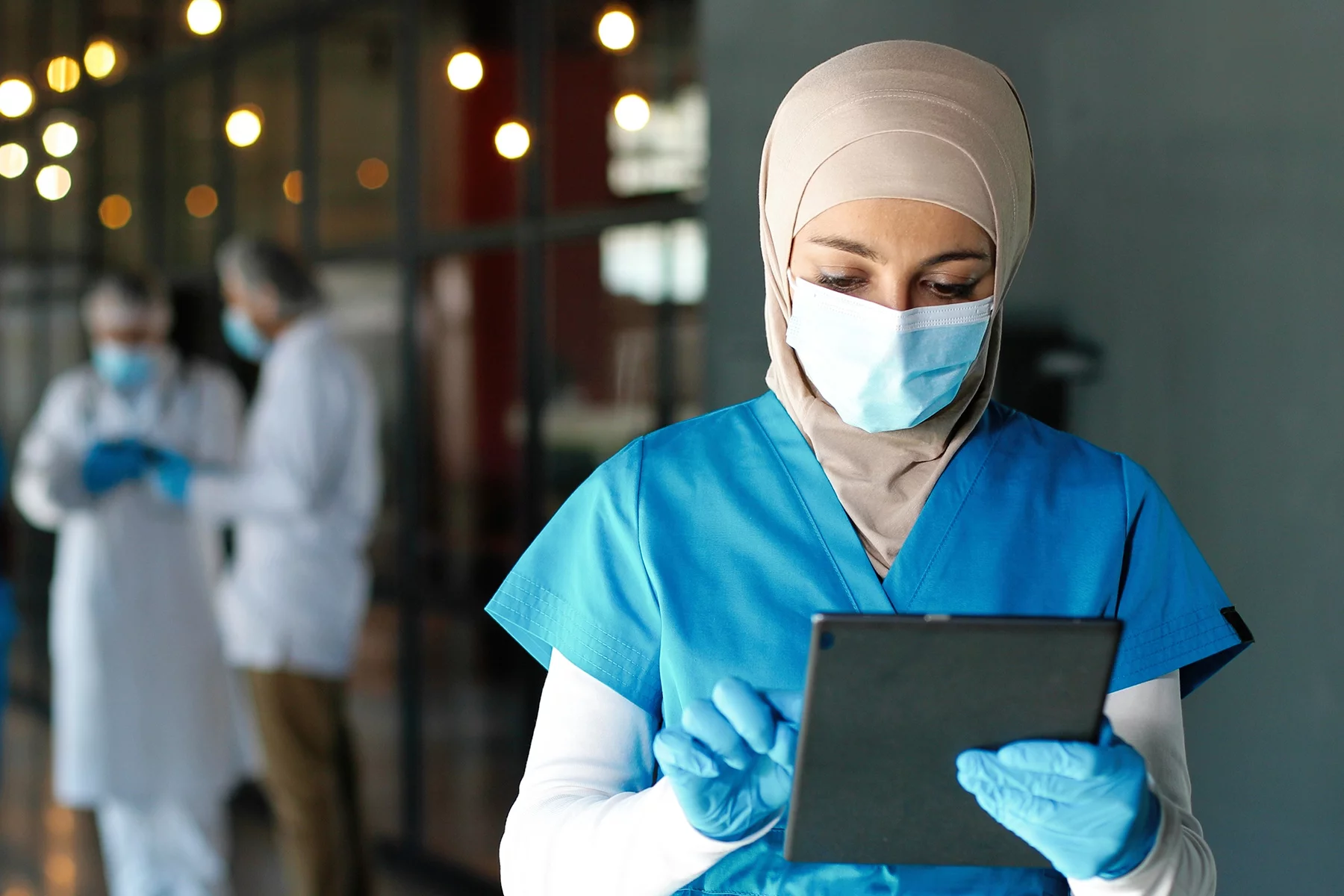
Cancer screenings in Saudi Arabia
Screenings for cervical cancer
Cervical cancer screenings are fairly straightforward, involving a Pap and/or HPV test. This usually takes around 15 minutes, depending on your doctor’s recommendation, and should happen every three to five years. Be sure to check your insurance to make sure it will cover the screening.
Breast cancer screening
Breast cancer is the ninth leading cause of death for Saudi women. The government is taking it seriously: breast cancer screenings are free of charge for locals. If you’re looking to get a screening, begin by checking what your insurance covers, and set an appointment with your medical provider. Luckily for expats, most insurance terms cover most or all of the costs associated with detection and treatment. Importantly, expats can access high-quality cancer treatment, from radiotherapy to mastectomy. Many expats choose to stay as they battle cancer.

Ovarian cancer screening
Unfortunately, there is no real way to screen for ovarian cancer until you start to experience symptoms. So, because there is no test, you should make sure to regularly see your gynecologist and to pay attention to your body. If something feels different, wrong, or painful, be sure to address it with your doctor.
Sexual health in Saudi Arabia
Public health and sexual health campaigns are essentially nonexistent in the Kingdom. Schools do not provide sex education, so students graduate and become husbands and wives who are ill-equipped to understand things like sexually transmitted diseases. In fact, in a recent study, 32% of adult Saudi women had one or more sexually transmitted diseases – a condition that can increase the likelihood of risky pregnancies.
Availability and cost of feminine hygiene products
Women can widely access feminine hygiene products in Saudi Arabia. However, in smaller cities and towns, tampons (and especially tampons with applicators) may be trickier to find. Expats with particular needs (like menstruation cups, pure cotton pads, and the like) should pack in bulk – better safe than sorry.
Women’s clinics and healthcare centers in Saudi Arabia
Because the Saudi government invests heavily in its public healthcare system, high-quality specialty care is often found in public institutions. Top women’s clinics are no exception.
Expats interested in women’s health centers can check out the following:
- International Medical Center (affiliated with the Mayo Clinic in the United States)
- King Fahad Medical City
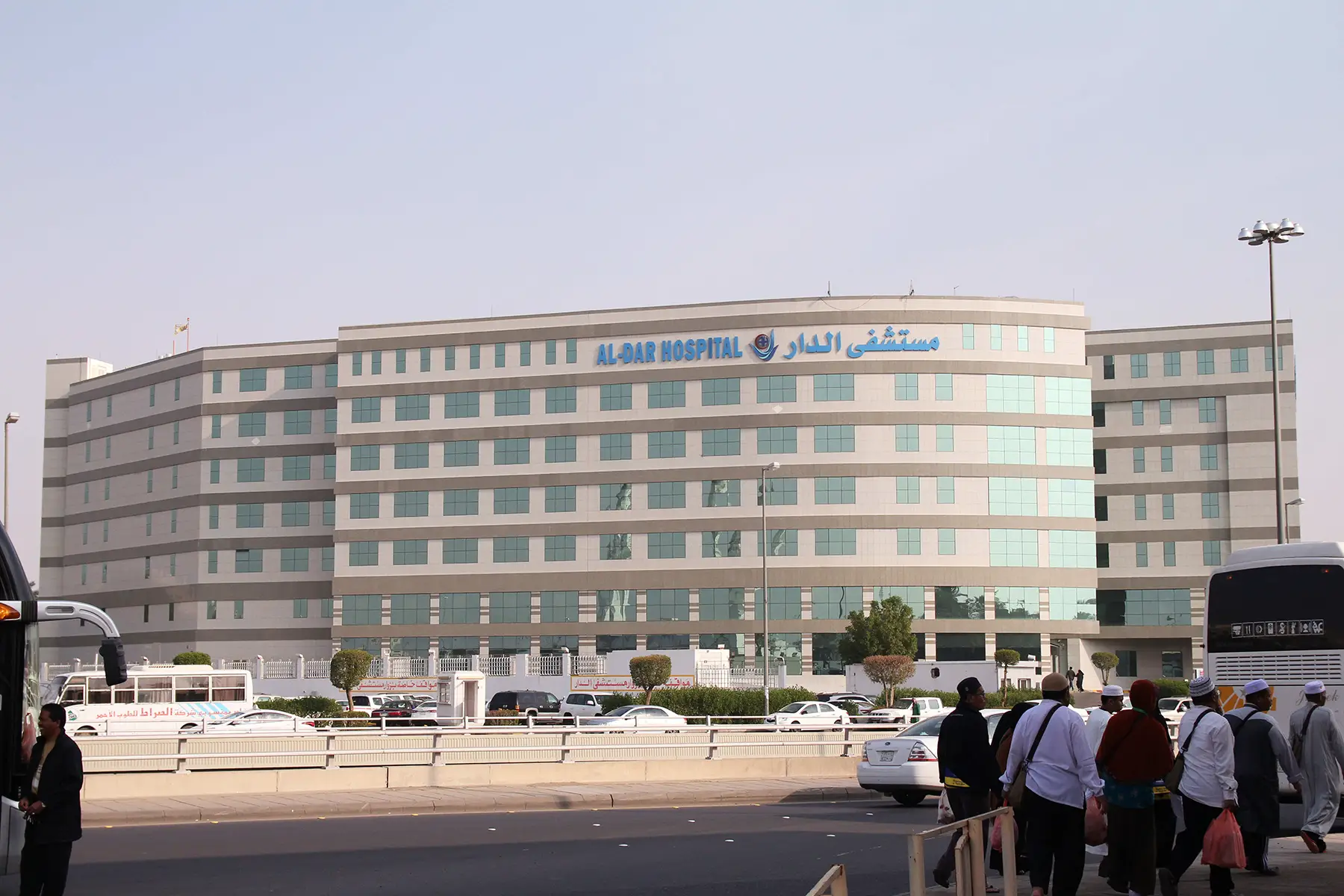
Women’s mental healthcare in Saudi Arabia
Saudis are beginning to remove the stigma around mental health. Over the past several decades, the Kingdom has created an extensive hospital-based mental health system, with nearly 2,000 psychiatrists and psychologists in the country. That said, women still struggle to access proper mental health support. A recent study showed that between 17% and 46% of Saudi women have depression – but mental health only gets 4% of the total health budget. Therapists and women’s support groups are difficult to come by outside of the hospital system. So, your best bet is to obtain a doctor’s recommendation for psychologists or to tap into your expat networks.
Services dealing with eating disorders in Saudi Arabia
Discussing eating disorders in Saudi Arabia, as in much of the world, is taboo. There are no major studies or national campaigns to spread awareness about it, despite the fact that a recent study at Taif University found that more than 35% of women students were at risk of an eating disorder.
If you are looking for an eating disorder support group, you should look within your expat networks and ask your medical provider.
